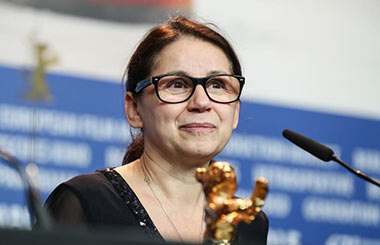Hard act to follow
 |
|
Yang has managed to do something which up until now, has proved difficult for many companies in the arts and cultural sector - attract serious investment. Provided to China Daily |
According to Wang, its shows in Yunnan, as well as the ever-popular "Peacock" performances, continue to be sold-out with audiences from home and abroad providing the company with a solid, well-proven income stream.
They are now starting to authorize performances of the original shows to other regions outside Yunnan, illustrating a business with ambition, and expansion plans.
Its latest cooperation agreement for a Peacock show has been signed with Hangzhou Gold Coast Culture Development Co Ltd, for performances in Hangzhou, capital of Zhejiang province.
"We pay particular attention to innovation, and try to combine dance with acrobatics and drama, for instance, to present new, high-quality performances," added Wang.
In December 2010, Chinese equity investment firm Yunfeng Capital announced an investment of $50 million in the Beijing-based Impression Inc, a company founded by three famous directors - Zhang Yimou, Wang Chaoge and Fan Yue - which is dedicated to creating, producing, and managing large outdoor productions.
Its six outdoor shows staged so far have reflected local views and traditions in the cities of Guilin, in Guangxi Zhuang autonomous region, Lijiang in Yunnan province, Hangzhou and Putuo in Zhejiang province, Haikou in Hainan province, and Wuyishan in Fujian province.
By the end of September 2010, the show in Guilin had sold more than 5.9 million seats.
"Top celebrities in the culture sector, such as Zhang Yimou and Yang Liping, can attract investment to develop their performances - but raising funds in the sector can still be difficult," said Quan Junmin, the president of Shanghai Jiangzhou Drum Co, which owns the only national academic drum troupe of China.
However, the troupe is constantly under financial pressure, and according to Quan, it is often the investors themselves who find it hard to identify a sure bet.
Differentiating between outstanding performance companies and ordinary ones can be tricky, and so his team has to work hard to find a winning brand.
"Investment in the cultural sector, especially assessing something as abstract as performance, is at its very early stages in this country, but happily we have been one of the first to eat crab," added Xu Xiang.
His successful investment record in the cultural sector so far has now led SCGC to make an investment in Chinese online video website, LeTV.com with two partners, worth 45 million yuan.
LeTV.com listed on China's Nasdaq-style Growth Enterprises Market in 2010, and SCGC's investment return is expected to be more than 20 times.
According to the latest estimates, there have been 116 cultural industrial investment funds created in China, of which 35 are equity investment funds.
First phase funding has totaled 45.9 billion yuan, according to Guangming Daily.
But according to the latest figures, of the money raised to invest in the arts and creative industries, only around half has actually been invested, because solid, potential investment targets remain scarce.
The cultural investment market remains at a "low level" and there are few large companies experiencing anything like high growth, added Wei Pengju from the Creative Culture Research School at the Central University of Finance and Economics.
Of around 53 investment deals believed to have been completed by those cultural industrial investment funds, 23 were related to film and television, and eight to tourist performing arts, Guangming Daily reported.
The paper said that increasingly those funds are now looking at helping smaller companies, with good business performances, in the hope of finding the next big hit, or creative company.
Contact the writer at caixiao@chinadaily.com.cn

















